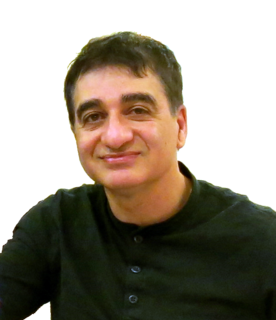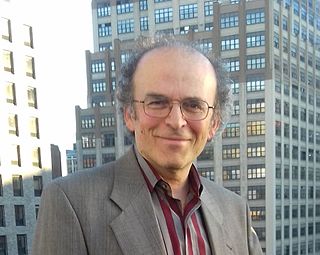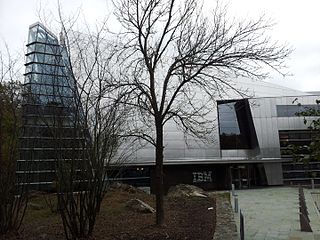About
CASCON was established in 1990. CASCON is a premiere industrial academic conference in computer science and software engineering, with about a thousand three hundred attendees. It continues to be an innovative forum for researchers, innovators, technologies and developers from academia, industry, and government to share knowledge, form collaborations, present original work and experience first-hand the latest technology trends.
Conference Content and format include:
- Keynote presentations
- Technical paper track
- Emerging technology track for position papers
- Workshops in different technology areas (such as Technology Areas)
- Best Paper and Best Student Paper Awards
- Frontiers of Software Practice plenaries
- Technology showcase of research outcome
CASCON proceedings are available in the ACM Digital Library and DBLP indexed.
Technical Papers
The technical papers program will feature both experience reports and original research papers in the general area of software technology and applications, but particularly addressing this year's theme.
At the conference, awards are given out for Best Paper and Best Student Paper. Criteria for the paper includes originality, clarity and potential impact.
Two paper awards - for Best Paper and Best Student Paper - will be presented to recognize the best technical contributions of the event in terms of originality, clarity and potential impact. To be eligible for the "Best Student Paper" award, a paper must have been primarily authored by a student and the work that the paper reports must have been undertaken by the student authors. Only the student author(s) of the Best Student Paper award receives a prize. The recipients must have been students at the time the work was undertaken.
The Association for Computing Machinery (ACM) is an international learned society for computing. It was founded in 1947, and is the world's largest scientific and educational computing society. The ACM is a non-profit professional membership group, claiming nearly 100,000 student and professional members as of 2019. Its headquarters are in New York City.
Peter Pin-Shan Chen is a Taiwanese American computer scientist. He is a Distinguished Career Scientist and faculty member at Carnegie Mellon University, who is known for the development of the entity-relationship model in 1976.
In static program analysis, Soot is a bytecode manipulation and optimization framework consisting of intermediate languages for Java. It has been developed by the Sable Research Group at McGill University. Soot provides four intermediate representations for use through its API for other analysis programs to access and build upon:
Brent Hailpern is a computer scientist and manager at IBM Research. His research work focused on programming languages and concurrency, and he is now Director of Computer Science at IBM Research - Almaden in San Jose, California.
ACM SIGACT or SIGACT is the Association for Computing Machinery Special Interest Group on Algorithms and Computation Theory, whose purpose is support of research in theoretical computer science. It was founded in 1968 by Patrick C. Fischer.
The International Academic Conference on the Future of Game Design and Technology, also known as FuturePlay, is an international academic conference that focuses on the future of video game design and technology. The most recent conference under that title was held in 2010.
SIGKDD is the Association for Computing Machinery's (ACM) Special Interest Group (SIG) on Knowledge Discovery and Data Mining. It became an official ACM SIG in 1998.

The Web Conference is a yearly international academic conference on the topic of the future direction of the World Wide Web. The first conference of many was held and organized by Robert Cailliau in 1994 at CERN in Geneva, Switzerland. The conference has been organized by the International World Wide Web Conference Committee (IW3C2), also founded by Robert Cailliau and colleague Joseph Hardin, every year since. The conference’s location rotates among North America, Europe, and Asia and its events usually span a period of five days. The conference aims to provide a forum in which "key influencers, decision makers, technologists, businesses and standards bodies" can both present their ongoing work, research, and opinions as well as receive feedback from some of the most knowledgeable people in the field.
The IBM Centers for Advanced Studies (CAS) are a group of research centres on the world that facilitate collaboration with university students and professors using IBM systems. There are 20 CAS located in various countries around the world. IBM's first CAS was established at the IBM Toronto Software Lab.
Patricia G. Selinger is an American computer scientist and IBM Fellow, best known for her work on relational database management systems.
Chandrasekaran Mohan is an Indian-born American computer scientist. He was born on 3 August 1955 in Tamil Nadu, India. After growing up there and finishing his undergraduate studies in Chennai, he moved to the United States in 1977 for graduate studies. After having been an Indian citizen from birth, since 2007 he has been an American citizen and an Overseas Citizen of India (OCI). Currently, he is an IBM Fellow based at the IBM Almaden Research Center. He is also a Distinguished Visiting Professor at China's Tsinghua University.
The Interservice/Industry Training, Simulation and Education Conference (I/ITSEC) is an annual conference in Orlando, Florida organized by the National Training and Simulation Association.

AnitaB.org is a global nonprofit organization based in Belmont, California. Founded by computer scientists Anita Borg, PhD and Telle Whitney, PhD, the institute’s primary aim is to recruit, retain, and advance women in technology.
The Grace Hopper Celebration of Women in Computing (GHC) is a series of conferences designed to bring the research and career interests of women in computing to the forefront. It is the world's largest gathering of women in computing. The celebration, named after computer scientist Grace Hopper, is organized by the Anita Borg Institute for Women and Technology and the Association for Computing Machinery. The 2018 conference was held in Houston, Texas on September 26-28.

Massoud Pedram is an Iranian American computer engineer noted for his research in green computing, energy storage systems, low-power electronics and design, electronic design automation and quantum computing. In the early 1990s, Pedram pioneered an approach to designing VLSI circuits that considered physical effects during logic synthesis. He named this approach layout-driven logic synthesis, which was subsequently called physical synthesis and incorporated into the standard EDA design flows. Pedram's early work on this subject became a significant prior art reference in a litigation between Synopsys Inc. and Magma Design Automation.
Shai Halevi is a computer scientist who works in the cryptography research group at IBM's Thomas J. Watson Research Center.
Henry A. Kautz is a computer scientist, Founding Director of Institute for Data Science and Professor at University of Rochester. He is interested in knowledge representation, artificial intelligence, data science and pervasive computing.

Gregory I. Piatetsky-Shapiro is a data scientist and the co-founder of the KDD conferences, and co-founder and past chair of the Association for Computing Machinery SIGKDD group for Knowledge Discovery, Data Mining and Data Science. He is the founder and president of KDnuggets, a discussion and learning website for Business Analytics, Data Mining and Data Science.

Hausi A. Müller is a Canadian computer scientist and software engineer. He is a professor of computer science at the University of Victoria, British Columbia, Canada and a Fellow of the Canadian Academy of Engineering.

Chris Harrison is a British-born, American computer scientist and entrepreneur, working in the fields of human-computer interaction, machine learning and sensor-driven interactive systems. He is a professor at Carnegie Mellon University and director of the Future Interfaces Group within the Human-Computer Interaction Institute. He has previously conducted research at AT&T Labs, Microsoft Research, IBM Research and Disney Research. He is also the CTO and co-founder of Qeexo, a machine learning and interaction technology startup.







